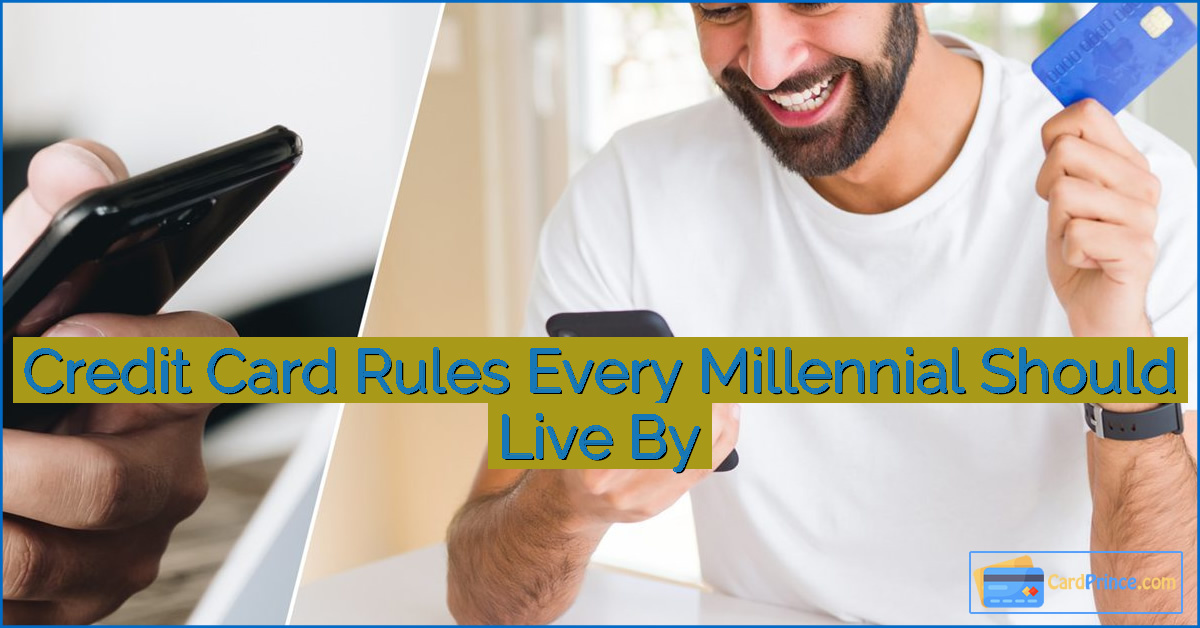You can trust the integrity of our balanced, independent financial advice. We may, however, receive compensation from the issuers of some products mentioned in this article. Opinions are the author’s alone, and this content has not been provided by, reviewed, approved or endorsed by any advertiser.
Credit cards can be a powerful tool when you use them responsibly. But if you’re not careful, they could cause problems.
At best, you could be missing out on some valuable benefits. But at worst, they could damage your financial health.
To help you use credit cards more wisely, here are 10 mistakes you should avoid.
1. Not paying your balance in full each month
You may have expected this to say “paying just the minimum amount due each month,” but you can do even better.
Paying off your balance in full each month prevents you from ever having to pay interest, which is the most significant danger that credit cards pose.
It can also help you avoid racking up a large balance, which can be hard to pay off. To make this work, it’s best to stick to a budget and avoid racking up a balance that’s larger than what’s in your checking account.
2. Paying your bill manually
If you’re relying on your memory to make your monthly payment, you’re bound to forget sometime. To avoid potential late fees and a potential ding to your credit, set your account on autopay.
You can typically do this in your online account or by calling your card issuer. Just be sure you have enough cash in your checking account on your payment date. If the balance is too low, you could end up with a returned payment fee from your credit card issuer or an overdraft fee from your bank.
3. Racking up a high balance
Maxing out your credit card balance is never ideal. But getting even close can be just as damaging, even if you’re paying your bill in full each month.
Your credit utilization, which you can calculate by dividing your credit card balance by your credit limit, plays a significant role in how your credit score is calculated. There’s no hard-and-fast rule for what your utilization rate should be, but the lower it is, the better.
Keep your utilization low by not using your card too much, or by making payments throughout the month to keep the balance relatively low.
4. Not knowing your card’s benefits
Card Details »
Some of the best credit cards are packed with perks, many of which you might not even know about. Certain Wells Fargo credit cards, for instance, offer $600 worth of insurance coverage for your cell phone if you use your card to pay your phone bill (with a $25 deductible)
And if you’re a college student with the Discover it® Student Cash Back, you could get a $20 statement credit for each school year where your GPA is at least 3.0, for up to five years.
The more you know about your credit card, the more value you’ll get out of it. While some benefits are highlighted on the card issuer’s website and advertising, some perks are hidden in the fine print. Check your cardholder agreement and learn more about what your credit card can do for you.
5. Not maximizing your credit card rewards
If you have a rewards credit card, milk it for all it’s worth. If it offers bonus rewards on some spending categories, for instance, try to take advantage of those bonus rewards without overspending.
Card Details »
For example, if your credit card offers bonus rewards on grocery store purchases but not at restaurants, purchase gift cards to your favorite restaurans to earn the higher rewards rate.
If you’re comfortable with using more than one credit card, you could even get more value out of your rewards. For example, you can use the Discover it® Cash Back solely for its five percent bonus categories, which rotate every quarter, and the Chase Freedom Unlimited® to get 1.5 percent cash back on all other purchases.
6. Using the wrong credit card entirely
If you’ve been using the same card since college, your credit has improved significantly since getting your last card—that’s a sign that you need a new credit card.
Take a look at your current card and ask yourself whether it’s meeting your needs. Getting a new credit card may sound like a hassle, but it could make a big difference in the long run.
7. Closing an old credit card for no good reason
Closing an old credit card can damage your credit if you’re not careful. If you have high balances across your other credit cards, losing that available credit could spike your credit utilization and cause your credit score to dip.
That said, there are a few situations where closing a card could be a good idea despite the potential credit consequences, including:
- You’re paying an annual fee, and you don’t use the credit card, or you’re not getting enough value out of the card to cover the fee.
- It’s a secured card, and you want your deposit back.
- You have spending problems, and don’t want the temptation.
8. Paying credit card convenience fees
If you’re paying rent, utilities or taxes, many of these types of merchants will tack a fee onto your payment just for the privilege of using a credit card.
In most cases, this fee isn’t worth it, especially when the fee is higher than the amount you’ll earn in rewards on the transaction. For example, if you have to pay a $35 fee to pay $1,000 in rent each month, you’re unlikely to get enough rewards from the transaction to beat that 3.5 percent fee.
There are a few situations, however, where it might be worth it. If you pay your taxes through Pay1040.com, for instance, the fee is 1.87 percent of your payment.
If you have a credit card with a two percent rewards rate on all purchases, you could come out of that transaction on top. Always run the numbers to make sure you’re not losing money due to a convenience fee.
9. Taking a cash advance
Most credit cards allow you to convert a portion of your credit limit into cash in the form of a cash advance. While that sounds tempting if you’re short on cash, it’s almost always a terrible idea.
Credit card issuers typically charge higher interest rates on cash advances than they do on regular purchases. What’s more, there’s typically no grace period on cash advances, so interest will start accruing immediately.
You’ll also have to pay an upfront fee, typically five percent or higher, just to process the transaction. So in general, the costs always outweigh the benefits with a cash advance.
10. Having a credit card, period
While a credit card can be a useful financial tool, it’s not a great idea to use one if you have issues with overspending or don’t keep a budget.
Credit card debt can make it difficult to qualify for other forms of credit, and your monthly cash flow can suffer. So if you’ve had issues with overspending on a credit card in the past, it may be best to use a prepaid debit card, traditional debit card, or cash instead.
If you’re going to get a credit card anyway, get one with a low APR, or one with a low credit limit to help you practice spending responsibly. Also, use your credit card in conjunction with a budget to make sure you’re not spending more than you can afford.
Summary
The more you know about your credit card, the easier it will be to squeeze as much value out of it as possible. Part of that effort includes knowing about these credit card mistakes and avoiding them at all costs.
As you get the right credit card, develop good credit card habits and use your card responsibly, you’ll not only establish a solid credit history, but you’ll also take advantage of the card’s benefits without worrying if it’s worth it



Leave a Reply